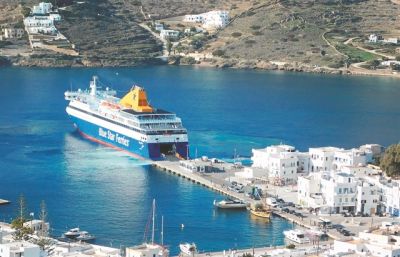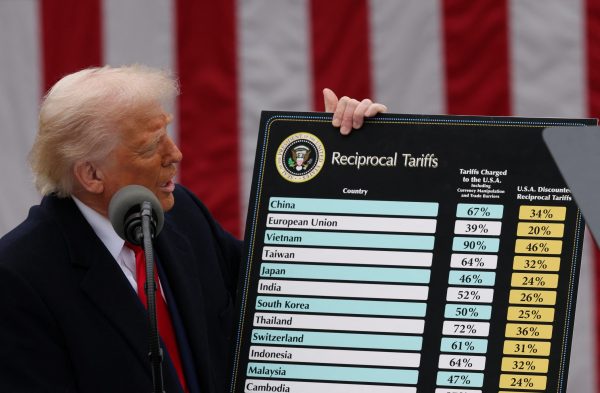
Large and small Greek ports, 61 in all, are racing to implement investments of up to 90 million euros in order to adapt to the new rules for the entry and exit of third country (beyond Schengen) nationals.
The deadline is May 1, 2023, and some are hoping for further extensions to the implementation of the regulations by the EU, as other countries also face adaptation problems. The new requirements of the Schengen treaty may deprive Greece of the possibility of access for cruise ships, yachts and pleasure boats from third countries, while at the same time the daily connection of the islands of the South and North Aegean with the Turkish coast will stop.
The new procedures, which mean extra workload, have to be implemented at all Border Crossing Points (BCPs) in the country, which are 17 land, four rail, 28 air (airports) and 61 sea. Of the 61 institutionalized maritime Border Crossing Points, 12 are Port Authorities, 43 are Prefecture Port Funds or Municipal Port Funds and six are private ports.
No space
Most Greek ports have insufficient space to impement the appropriate infrastructure and equipment to serve all the new functions, with the strict observance of the prescribed procedures of the regulatory and legislative framework.
Experts estimate that the cost of building a ready-to-operate suitable infrastructure is estimated at 2,500-3,000 euros per square meter, with the minimum space required approaching 300 sq.m. for small ports, while in large ones, e.g. Heraklion, Thessaloniki, Lavrio, Corfu, the estimated spaces amount to 2,500-3,000 sq.m., while in Piraeus even more space is required, due to the homeporting procedures.
According to Ministry of Shipping and Island Policy sources, it appears that to date only about 45 of the 61 marine entry points have ready functional studies, proposed necessary infrastructure and the required approvals and are awaiting instructions from the ministry on how to finance them.
EU regulations
Only a few ports can finance the required projects indepemdemtly. Most of them are waiting for the state grant and approval from the Commission, since it is a mandatory application of a regulation of the European Union. In order to overcome the delays, the Ministry of Shipping promoted a regulation which designates the Hellenic Republic Asset Development Fund-HRADF as a coordinator in the process of accelerating the implementation of the required infrastructures in the 61 maritime entry points, considering that HRADF, as the main shareholder of the 12 Port Organizations and several Port Funds that have been institutionalized, can play an extremely important coordinating role with its economic and technical competence taking into account the narrow time frames for their operational upgrading and compliance . The Shipping Ministry is also promoting the integration of the projects into the Recovery Fund and estimates that the total expenditure will not exceed 50 million euros.
The new regulation brings about key changes compared to the existing entry-exit system, as it provides that for third-country nationals who enter the Schengen area (European Union) for the first time or do not have an electronic registration in the data system of the European Union, in addition to checks to record and identify the demographic data listed on their official travel documents, it will also be required to capture, process and store biometric data consisting of fingerprints and a facial photograph.
A new arrangement is also being promoted for citizens of countries that were excluded from Schengen, such as the USA, who will join a platform and pay a small amount, with the proof to be shown at the entrance to the Schengen country. More details are expected to be announced by the Ministry of Citizen Protection in meetings where cruise industry stakeholders will also participate.
Latest News

Trump Tariffs Jeopardize Growth: Piraeus Chamber of Commerce
The tariffs, aimed at reducing the U.S. trade deficit, are expected to have both direct and indirect effects on the European economy

EU Condemns Trump Tariffs, Prepares to Retaliate
As tensions escalate, the EU is expected to continue negotiations with Washington while preparing for potential economic retaliation.

The Likely Impact of Trump Tariffs on Europe and Greece
Trump tariffs are expected to negatively affect economic growth in the Eurozone while Greece's exports could take a hit.

Motor Oil Results for 2024: Adjusted EBITDA of 995 mln€; Proposed Dividend of 1.4€ Per Share
Adjusted EBITDA for 2024 was down 33% yoy. The adjusted profit after tax for 2024 stood at 504 million euros, a 43% decrease from the previous year

Cost of Living: Why Greece’s 3% Inflation Is Raising Alarm
Greece appears to be in a more difficult position when it comes to price hikes, just as we enter the era of Trump’s tariffs.

Fitch Ratings Upgrades the Four Greek Systemic Banks
NBG’s upgrade reflects the bank’s ongoing improvements in its credit profile, Fitch notes in its report, including strong profitability, a reduction in non-performing exposures (NPEs), and lower credit losses

Trump to Announce Sweeping New Tariffs Wednesday, Global Retaliation Expected
With Trump's announcement just hours away, markets, businesses, and foreign governments are bracing for the fallout of one of the most aggressive shifts in U.S. trade policy in decades.

Inflation in Greece at 3.1% in March, Eurostat Reports
Average inflation in the eurozone settled at 2.2%, compared to 2.3% in February

Greece’s Unemployment Rate Drops to 8.6% in February
Despite the overall decline, unemployment remains higher among women and young people.

Jerry Kalogiratos Highlights Key Role of Energy Transition and Data Demand in LNG Outlook
Energy transition and the prospects of LNG were discussed at Capital Link’s 19th Annual International Maritime Forum, during a panel discussion with Jerry Kalogiratos (Capital Clean Energy Carriers Corp.)
























![ΕΛΣΤΑΤ: Αυξήθηκε η οικοδομική δραστηριότητα κατά 15,6% το Δεκέμβριο [πίνακες]](https://www.ot.gr/wp-content/uploads/2025/03/DSC9655-2-1024x569-1-90x90.jpg)

















 Αριθμός Πιστοποίησης
Αριθμός Πιστοποίησης